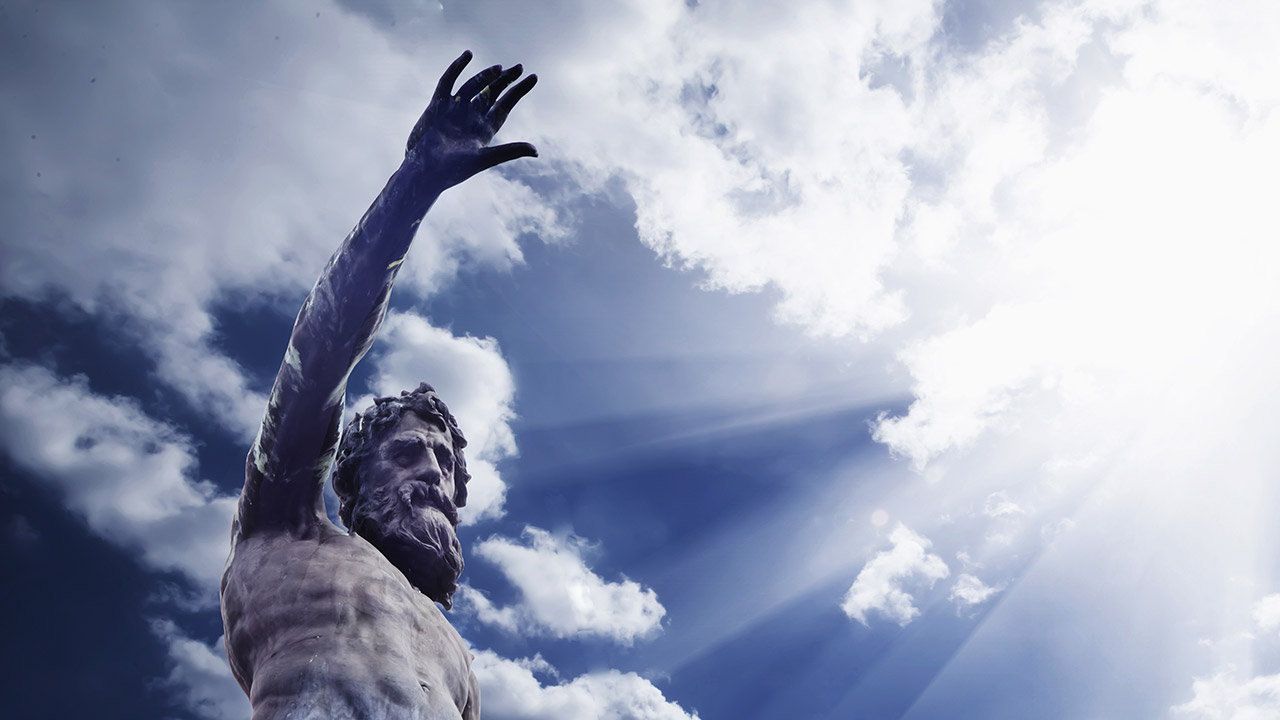Cultivating Your Ethos. A review of For a European Awakening
Une recension en anglais de l'ouvrage collectif Pour un réveil européen (La Nouvelle Librairie Éditions, septembre 2020), par Guillaume Durocher (unz.com).
In Europe today, it is easy to fall into permanent numbness amidst the omnipresent falsehoods, frivolousness, and slouching. That makes it all the more remarkable when one encounters some who resist, some who hold to an ethos, to the legacy of an entire civilization… an invigorating oasis in the most sterile spiritual desert.
Thus I came across this remarkable little book by the Iliade Institute, “For a European Awakening,” with contributions from over a dozen French activists fighting for the cause of indigenous Europeans and their exceptional civilization.
The book is part of Iliade’s growing collection of attractive paperbacks for the European wishing to reconnect with his roots and look to the future without flinching, covering issues as varied as European identity, poetry, demonization by the media, the Middle Ages, and the European dimensions of Shakespeare and Nietzsche.
The authors include a wide variety of contributors from the French identitarian cultural ecosystem, including teachers and university professors, historians, book and magazine editors, PhD students and graduates, and the occasional high civil servant and corporate manager. Among them we have the philosopher Alain de Benoist, Iliade co-founder Jean-Yves Le Gallou, and the young Thibaud Cassel, an alumnus of the European institutions.
The book represents an ethical synthesis, almost a manifesto, of what we might indeed call the Iliadic or Vennerian school of French identitarianism. The collection seeks to give intellectual and practical answers to the question: How is a self-respecting European to behave today? The work is organized according to the three Iliadic slogans:
- Nature as foundation.
- Excellence as goal.
- Beauty as horizon.
The result is an impressive medley of essays on topics as varied as economics, urban development, environmentalism, spirituality, work, and political philosophy.

Iliade does not propose a return to any particular tradition – Stoic, Christian, or other – but a kind of general elevated ethos drawing from Europe’s varied spiritual roots. One may deem it post-Nietzschean or neoclassical. At bottom, it is an elitist, aristocratic ethos challenging us to achieve individual excellence within an organic community, guided by the Hellenic trifecta of Nature, Excellence, and Beauty.
In terms of politics, there is a muscular rejection of the social contract, in favor of an Aristotelian vision of flourishing grounded in human nature, that of, inter alia, a social, spiritual, unequal, intergenerational, and hereditary animal. Hence a decidedly particularistic and biocentric worldview: “Ethos does not mean for the Greeks a universal morality founded on the opposition between good and evil: ethics is the way in which beings bear themselves in the face of the world over the course of their usual sojourn. The ethos of a people draws its roots from a tradition and rests on transmission” (147).
The basic fact of continuity with ancestral tradition lies in human nature. Indeed, we need “a realistic conception of human nature …based on the teachings of ancient wisdom bolstered by the discoveries of modern European science” (p. 31). Iliade happily integrates the latest biological science – the Anglo-Americans have long had a much stronger empirical tradition – into a very French intellectual tradition of deep knowledge of history and philosophy. Indeed, the reader gets something of a crash course in Greek and Roman ethical terminology, with ample references not only to French authors, but also and especially to great German thinkers (Schmitt, Jünger, Hölderlin, Heidegger…).
The historian Henri Levavasseur admirably sums up the insane hubris of the blank-slatist emancipatory project against human nature:
In the name of the struggle against all forms of discrimination, the advocates of the “blank slate” are determined to deconstruct the classic anthropological categories. They want to definitively impose, first through media and social pressure, then through judicial and State coercion, a “fluid” model of identity, meant to replace “natural” families and nations, entities considered to be oppressive or outdated. In this view, the sovereign individual must be able to choose its identity in complete autonomy: the social order has no other role than guaranteeing the existence of this free choice… This deathly ideology however is crashing against the wall of reality… (p. 32)
This vision applies naturally to nations – considered as nothing more than contractual economic spaces – and, in horrifyingly surreal fashion, to biological sex itself. The result however of going so brutally against the grain of human nature is merely ugliness, sickness, and chaos, as witnessed by the perpetual ethnic strife of multicultural nations.
The revolt against identity – the last constraint – seems to flow quite naturally from the general collapse of behavioral standards since the Second World War, what we might call the Great Slouching:
Though it may seem difficult to establish objective criteria of “conduct” [tenue], everyone can instinctively define what must be rejected: unkemptness, vulgarity, slackness. The latter takes various forms: slackness of the body (flabbiness or exhibitionism), of behavior (lack of self-control, neglect of rules of courtesy), of the spirit (intellectual laziness, conformism), or of the soul (loss of a sense of honor, lack of courage or lack of faithfulness to one’s principles). (p. 152)
This ethical collapse naturally coincided with and entrenched Europe’s cultural and geopolitical collapse. The historian Philippe Conrad observes: “The ‘dark Twentieth Century’ witnessed global power’s center of gravity move to North America, itself bearing a new model of civilization, initially inspired by Wilsonian universalism and liberal illusions” (p. 8). Europe’s decline was aggravated by societal liberalism, most spectacularly expressed in France with the May ‘68 protests, a decline only partially masked by ongoing technological progress.
Today, Europe is in a position somewhat similar to France in the nineteenth century: riding on her past glories and facing rapid decline relative to other powers. France, once Europe’s cultural hegemon and leading power, became a highly vulnerable second-tier great power. So Europe, once mistress of the world, is now a mere trade bloc – having lost all military or cultural preeminence – and a rapidly declining one at that. If the United States long was able to sustain a dynamic symbiotic relationship between political liberalism and national power, few today remain optimistic about that hyper-polarized non-nation’s medium-term prospects. We risk a rude awakening.
Perhaps the book’s most important passages are those suggesting practical actions each of us can undertake to lift ourselves out of this morass. The European may elevate himself through a self-conscious and demanding ethic and way of life. Thibaud Cassel urges us (citing Dominique Venner): “to cultivate a close relationship with nature, through hunting or hiking … to practice a martial art, in order to cultivate a concrete virility and to gather the individuals who still have a lively taste for effort … to write often, and to reread ourselves, so as to cultivate consciousness of our action” (p. 84).
The Iliade Institute graduate Alix Marnin writes of the need for well-spent leisure or otium, “free time dedicated to study and reflection … as the necessary condition for all action, distinct from agitation and busyness, that is negotium. The accomplished man does not distinguish action from contemplation, and has the will to develop himself intellectually” (p. 88). Indeed, private and professional life should not be “balanced” as antagonistic poles of one’s life, but form a unified and harmonious whole (p. 91).
Levavasseur himself presents an alternative to the postwar anti-ethos:
To seek excellence as a goal means to keep to moral elegance, to practice a certain self-restraint, to cultivate demands upon oneself; it means to fight to harmonize thought and action, being and appearance, to tend towards overcoming, rather than seeking, hedonistic “fulfillment”; to submit to freely consented discipline rather than demanding total freedom; it is to know that one is “a link in the chain,” to serve others rather serve oneself, to be demanding in choosing one’s peers while being able to face solitude; finally and especially, it means transmitting this collection of demands through example, to never deny oneself by way of ease, comfort, and security. The surest way of achieving this is to build an “inner citadel,” through daily meditation, reading, but also through the discipline of the body. (p. 153)
In short, the European must not live as he has recently learned to, at random. Rather, he will live in such a way that he may, as a Roman did, proudly inscribe on his tomb: “My manners have enriched the virtues of my race. I have begotten descendants, I have sought to equal to the exploits of my father. I have deserved the praise of my ancestors, who rejoiced to see me born for their glory. My honor has ennobled by lineage” (p. 149).
Reading this book, I could not help but feel inspired and renewed. I thought to myself: here is a work which merits translation, into German, Italian, Spanish, Hungarian, and… why not, English! Europe needs a new elite which feels for her as our common motherland. We need dissenters from globalism who will not be sidetracked by certain sterile petty-nationalist or conservative culture-war obsessions. The preservation and resuscitation of Europe as a distinct, sovereignly animated, and living human community will serve genuine human diversity: “As a tree cannot survive without roots, so the universal only exists as a polyphonic extension of specific identities” (p. 31).
Admittedly, not all will be convinced by some of these essays in the detail. The philosopher Rémi Soulié makes the case for the “golden thread” of European mysticism – Pythagoras, Plato, Master Eckart, Mircea Eliade … (p. 24) – and one is left wondering how to practice this outside any particular tradition. (The glory of Zen and Orthodoxy as living traditions, as Plato might well have conceded.)
Jean-Philippe Antoni, a professor of urban and territorial development, rightly asks: What exactly may be deemed “natural” in the age of GMOs and synthetic biology (p. 45)? This in fact means no discrediting of the notion of biological nature, but merely that it must be thought in a futurist spirit, one which understands that ancestral wisdom and traditional notions of excellence must indeed be recast as and when our technology comes to transform, not merely the conditions of life, but life itself. This century will indeed witness more perfect beings and perfect monstrosities.
I wholeheartedly endorse this fine collection and invite Europeans across the world to read and translate its contents. We are, decidedly, living in a time of greatness, of a sort. The authors readily refer to the famous demographic Great Replacement, but also to the cultural Great Effacement, the Great Confinement of the past year, the Great Upheaval that these represent, and ultimately the Grand Ressourcement. An expression I cannot adequately translate, but which means something like “the Great Return to Our Roots.”
Jean-Yves Le Gallou rightly observes that European history is made up of rises and falls punctuated by rebirths (96). Thus if we work and carry on the torch we may rightly hope, in our lifetimes or the next, for another transformation: the Great Renaissance.
Guillaume Durocher
Source : The Unz Review , March 16, 2021
